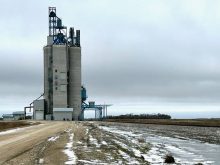Glacier FarmMedia – Bunge and Viterra said in late April that they still expect to proceed with their proposed merger, even after a Competition Bureau review identified major concerns about reduced competition.
A report from three University of Saskatchewan agricultural economists, prepared on behalf of four Saskatchewan and Alberta farm groups, reached the same conclusion. It was released April 29.
The Agricultural Producers of Saskatchewan was among those groups.
Read Also

KAP flags risky trade for Manitoba farmers
Tariffs, market access uncertainty, trade diversification and export infrastructure top the agenda at Keystone Agricultural Producers (KAP) annual meeting.
“We are particularly concerned about the potential for escalated costs and diminished profits for farmers, which would jeopardize their livelihoods, devastate rural communities and erode the sustainability of Canadian agriculture,” said APAS president Ian Boxall.
Manitoba’s general farm group echoes those concerns.
“We are currently in the process of analyzing the complete report to determine how this data can be used to effectively advocate for the interests of Manitoba producers,” said Keystone Agricultural Producers general manager Brenna Mahoney.
What the report said
The Competition Bureau said the merger would result in “substantial anti-competitive effects and a significant loss of rivalry between Viterra and Bunge in agricultural markets in Canada.”
It said Bunge is likely to materially influence G3 through its minority interest. Bunge holds a 25 per cent interest in G3’s parent company.
The merged company would have the most oilseed crushing facilities and primary grain elevators in Western Canada, whereas Viterra is now a significant competitor to Bunge and G3 for canola.
The bureau specifically identified concerns in the areas around crush facilities in Altona, Man., and Nipawin, Sask.
“When considered over the volume of purchases in these areas, the aggregate impact of these price effects is likely to be $7 to $9 million in the Altona area and $8 to $10 million in the Nipawin area in lost farm revenues annually,” the bureau said.
The economists said the sector is already concentrated and will become more so with the merger. They found the Vancouver export basis would increase about 15 per cent and canola crush margins would increase by 10 per cent.
“We estimate in our report that the restrictions at the Port of Vancouver alone could increase the export margin by $7.10 to $7.50 (per tonne),” said Richard Gray, one of the economists.
“And if you take 75 million tonnes of production in Western Canada, well, that’s $500 million a year right there that would come out of producers’ pockets. It’s real dollars.”
The report said the only viable way to maintain current competition at port would be for Bunge to divest its port terminal interest in G3.
The economists said the impact on canola crushing would be an $8-per-tonne increase in margin if the proposed Viterra crush plant is built, and $13 per tonne if it isn’t. That would further reduce farm income by about $200 million a year.
Gray said the capital value to farm balance sheets is huge. Capitalizing $500 million a year at a five per cent rate is about $10 billion.
“It’s a significant thing for producers that have a permanently higher export basis.”
Company reaction
On a call to discuss Bunge’s first quarter results, chief executive officer Greg Heckman said the deal should close by the middle of this year. Regulators in 13 countries haven’t yet approved it, but he said it was too early to speculate on whether the company would have to shed assets to close.
“We believe the noted concerns are misplaced and look forward to working with Transport Canada and the Bureau to provide further information addressing these points,” the two companies said in response to the Competition Bureau report.
“We are pleased the regulatory process is advancing and are confident the transaction will yield considerable benefits to Canada.”
Mahoney said KAP is also looking forward to what Transport Canada has to say. It is calculating the impacts to Manitoba should the deal go ahead.
The Competition Bureau review is non-binding.















